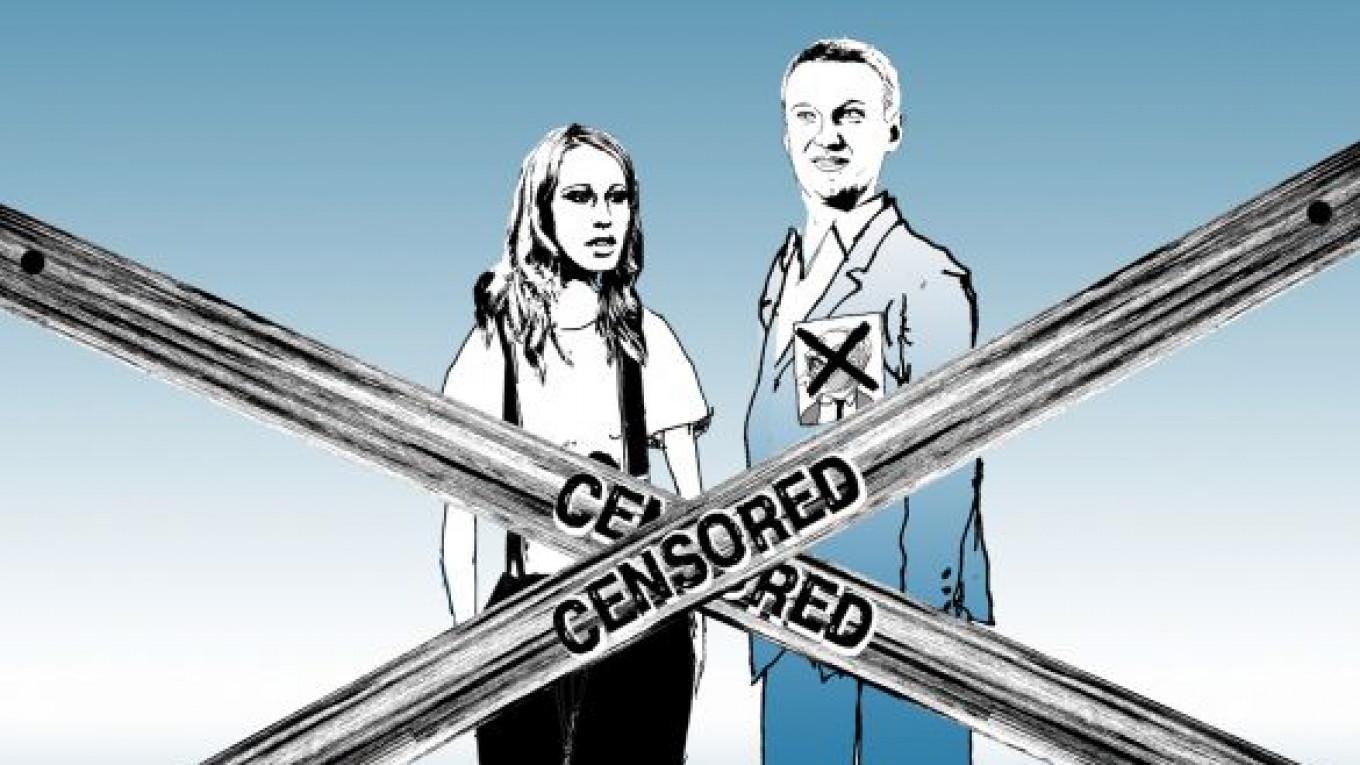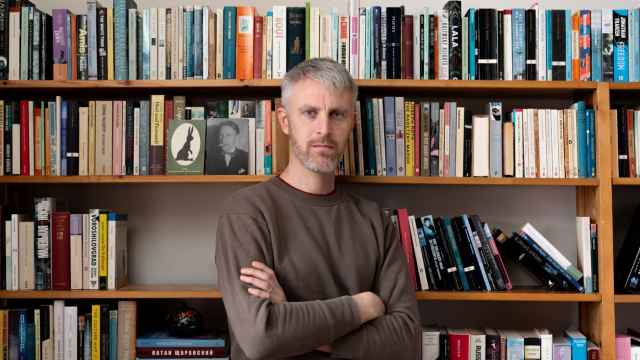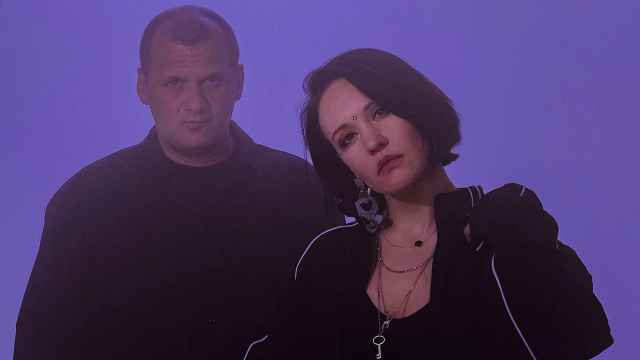This week, MTV Russia announced that it was pulling a political talk show hosted by It girl and media personality Ksenia Sobchak after just one episode. In an enigmatic statement, it said it was suspending the show to "define the format and the channel's positioning."
But Sobchak was characteristically outspoken about the abrupt termination of the show, called "GosDep," or "State Department." She broke the news on Twitter on Valentine's Day, saying the channel gave no reason for the closure but that they were about to film an episode with protest leader Alexei Navalny.
The first episode last week invited leaders of the protest movement who are rarely seen on television — such as Sergei Udaltsov of the Left Front movement and Yevgenia Chirikova who orchestrates a protest against road construction in the Khimki woods. It also included pro-Kremlin youth groups and parliamentary deputies. Sobchak wore a T-shirt with portraits of Vladimir Putin and Dmitry Medvedev and acted as moderator, reminding speakers that they were talking to a youth audience.
Sobchak also corresponded with new U.S. Ambassador Michael McFaul about him coming on a later show.
Clearly, MTV Russia with its bland and glossy programming was an odd choice to air a show promising some real debate and rough edges. But the channel publicized the show before its sudden U-turn, suggesting that the decision came from above.
Sobchak wrote on her blog that channel chief Roman Sarkisov was heavily involved in creating the show.
"Sarkisov gave the green light and actively participated in preparing the show," she said. She also said she insisted on having no black lists of people who could not appear — a common practice on television.
Sarkisov told RIA-Novosti, however, that the channel's surveys found that young people were uninterested in politics and would prefer to watch the new series of "Holidays in Mexico," a reality show starring young tanned people in bikinis. He said the channel would "reposition" itself and then return to the show, although presumably after the March 4 election.
Writing on Twitter, Sobchak suggested Sarkisov was speaking under duress. "I am sorry they are forcing Roman Sarkisov, a decent and principled person, to say this kind of thing. … I am sorry for all of us."
It's a strange transformation for Sobchak, who started out trading on her ditzy It girl image and famous name as the daughter of Putin's late mentor, Anatoly Sobchak. She published style guides and appeared in her own reality show, as well as co-hosting TNT's long-running reality saga "Dom-2."
Gradually she moved into politics. She barged in on government youth tsar Vasily Yakemenko lunching in an expensive restaurant and filmed him on her cell phone to prove that he is no man of the people. She started discussing protests on Twitter and even spoke at one of the rallies, although she represents the mildest end of the protesters. Until her show's closure, it seemed she had a free hand.
Sobchak said on her blog that MTV Russia got cold feet when it heard she was planning a show with Navalny about nationalism — an impressive feat given Navalny's reluctance to give interviews and his touchiness about accusations that he is a nationalist. Funnily enough, the channel suggested she instead cover the less controversial topic of gay rights — in a neat illustration of the changing times.
Clearly upset, Sobchak wrote she felt she had been put in her place — hosting "Dom-2," a gray purgatory of a show where contestants physically attacked each other on Valentine's Day.
"Don't dare reproach me any more for doing 'Dom-2.' I tried!" she wrote. "The conclusion is either be unemployed or do rubbish and toe the line."
A Message from The Moscow Times:
Dear readers,
We are facing unprecedented challenges. Russia's Prosecutor General's Office has designated The Moscow Times as an "undesirable" organization, criminalizing our work and putting our staff at risk of prosecution. This follows our earlier unjust labeling as a "foreign agent."
These actions are direct attempts to silence independent journalism in Russia. The authorities claim our work "discredits the decisions of the Russian leadership." We see things differently: we strive to provide accurate, unbiased reporting on Russia.
We, the journalists of The Moscow Times, refuse to be silenced. But to continue our work, we need your help.
Your support, no matter how small, makes a world of difference. If you can, please support us monthly starting from just $2. It's quick to set up, and every contribution makes a significant impact.
By supporting The Moscow Times, you're defending open, independent journalism in the face of repression. Thank you for standing with us.
Remind me later.






